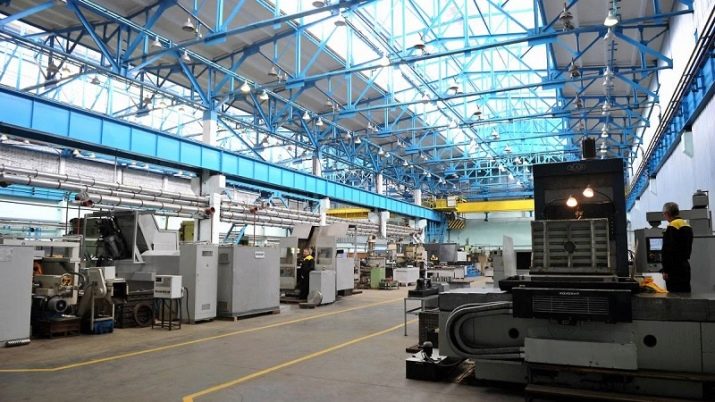Who is a toolmaker and what does he do?
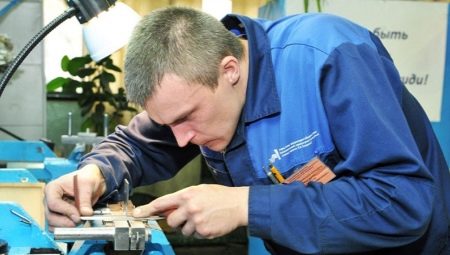
The work of a locksmith today has become one of the most common production specialties in our country. This is due to the great demand and the existence of many narrower specializations in this direction. One example of this was the position of a toolmaker. In our article we will dwell on on the peculiarities of this profession, labor duties, as well as the competencies and skills that this employee must possess.
Peculiarities
High quality production of all kinds of tools, stamps and devices is one of the prerequisites for effective production at every machine-building enterprise. Without the correct technological equipment, it is not possible to produce machine tools, machines and other equipment, just as it is unrealistic to achieve high indicators of labor productivity and quality of products.
Tool departments do not belong to the main shops, but rather to the auxiliary ones. In practice, this shop takes only an indirect part in the overall technological cycle of the plant.
Its tasks include not directly production, but the creation of the conditions necessary for it. However, this fact does not diminish the importance of toolmakers in the overall production process of the company.
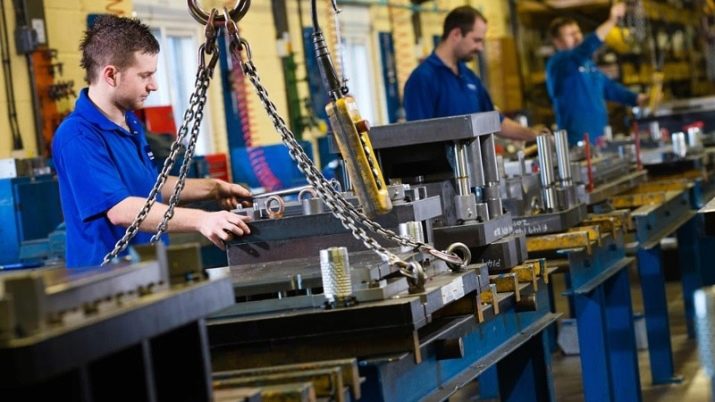
The tool business of any enterprise is much more complicated and more accurate than the basic one, which is why specialists in this field belong to the most qualified part of the working specialties. At the same time, the toolmaker is a much more laborious and diverse of all the instrumental professions - this person carries out work that cannot be performed on the most accurate and technological equipment. This worker is responsible for assembling cutting and measuring tools, as well as apparatus, stamps and instruments, doing their locksmithing and finishing the cleanest and finest surfaces. As a rule, the number of locksmiths is about 35% of all workers in the tooling department.
The undoubted advantages of this specialty include:
- wide demand for workers;
- employment in a wide variety of manufacturing industries;
- good prospects for professional growth and career building;
- the possibility of mastering a specialty directly in production;
- high level of remuneration.
However, there were some drawbacks. Among them are:
- increased physical activity;
- difficult working conditions.

Responsibilities
The complexity of the work of a toolmaker, its quality, accuracy and order determines the level of skill of the specialists. The higher the category, the more laborious the work will be, to which a specialist can be admitted. The level of skill of the toolmaker is determined in accordance with the assigned categories prescribed in the ECTS. In general, the job description of a qualified specialist includes the following responsibilities:
- processing of workpieces with an accuracy level of 12-14 grades;
- assembly and repair of tools and devices for further hardening of the tool;
- manufacturing and bringing to the required parameters of thermally untreated workpieces for hardening with a degree of accuracy of 12 grades;
- threading using taps and dies, as well as its alignment by caliber;
- creation and subsequent plumbing of tools, as well as mechanisms of medium complexity;
- practical use of specialized equipment and technological templates.
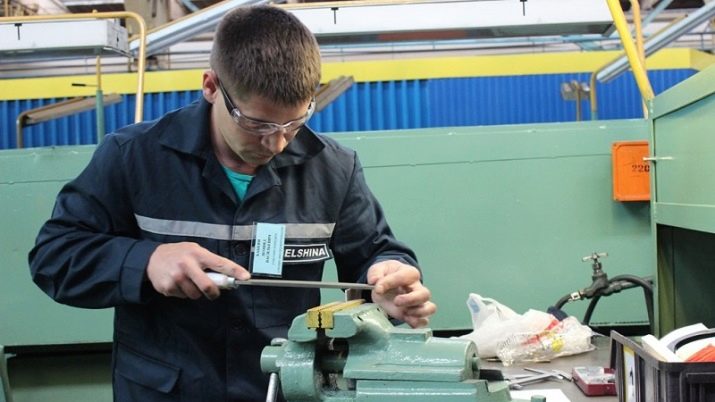
Knowledge and skills
To achieve all of the assigned tasks, a competent toolmaker must be fluent in working in a wide variety of areas. Strong knowledge is required from him:
- about basic geometric and trigonometric dependencies;
- about the theory of engineering and technical drawing;
- on the device of operated metal-working machines, as well as finishing and filing equipment;
- on the operating conditions of finishing materials;
- about physical, chemical and technical characteristics of steel of various grades;
- about instrumentation, their design characteristics and operating rules;
- on the dependence of the accuracy of the measurements performed on the heating level of the part;
- on the methods of heat treatment of all types of steel;
- on allowances in the process of finishing, taking into account the parameters of changing the properties of the metal in the course of thermal exposure.
The toolmaker must have a technical mindset. He must be able to compose and decipher drawing symbols well, to represent future products in volume. They are required to have skills in spatial thinking, an understanding of the specifics of the main working tools, as well as the economic feasibility of using certain processing methods.
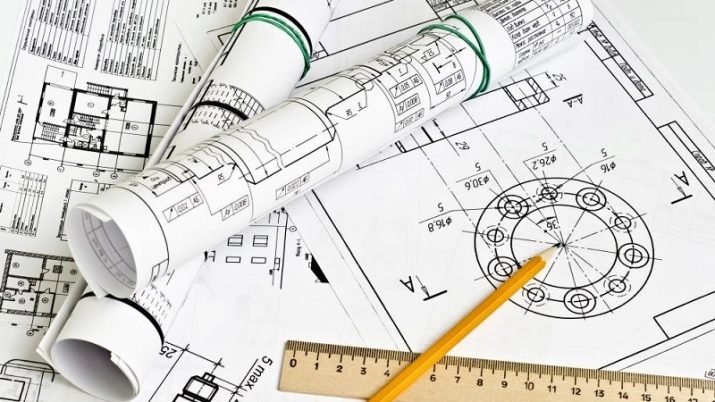
When doing the markup, he will need a solid knowledge of geometry. This person should have an idea of the technique for marking planes and the features of surface curvature. The presence of a volumetric as well as a linear eye is important.
For the production of fine-tuning or control measurements, it is required not only physical effort, but also high sensitivity of the hands, good coordination: the toolmaker must quickly pick up the parameters of changes in pressure and subtleties of resistance of metals, direction of movements, as well as their working dosage and force of application.This will allow avoiding overly frequent measurements and will significantly save the working time of specialists, as well as increase their level of professional skill.
Since the instrumental adjustment of equipment is considered one of the most labor-intensive and time-consuming operations, the locksmith will need stability of concentration and patience. Working in this position requires the presence of certain personal characteristics. These include:
- curiosity;
- broad technical horizons;
- high level of responsibility;
- scrupulousness;
- hard work;
- predisposition to performing monotonous work.
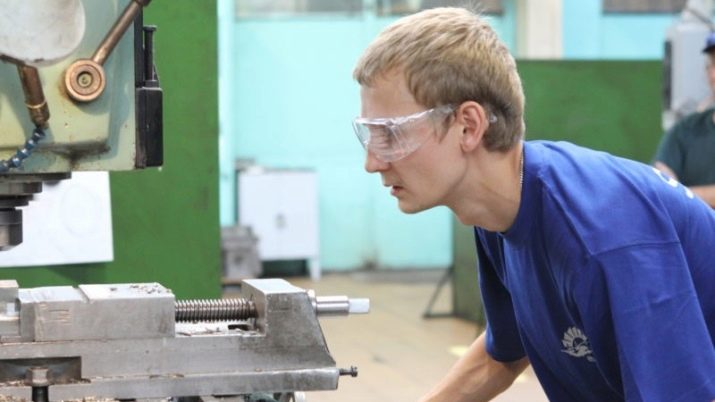
Education
To find a job as a toolmaker, a specialized technical education is required. However, it is not so difficult to get it, since this specialty is represented in almost all vocational schools, the enrollment in them is made on the basis of 9 or 11 grades. The training program includes both special and basic disciplines, great attention is paid to industrial practice. The so-called "targeted training" is widespread - in this case, students of secondary specialized educational institutions were invited directly to the plant with subsequent employment if they had an internship there.
Another way to qualify as a toolmaker are the courses taught by the UOC. They tend to take much less time than graduation from colleges and technical schools, however, they are also more compressed in time. That is why most often they are approached by people who already have some skills in the technical field as a worker.
The highest value is the training received directly at the production plant, when an experienced worker acts as a teacher and allows his student to master all the subtleties of a specialty in practice. However, in this case, the duration of training and obtaining the entire required range of skills will depend directly on the specialist himself and the employment of his supervisor. The position of a toolmaker offers career opportunities that are associated with raising the level of the professional category. Within the framework of the specialty, several qualification categories are distinguished:
- 2nd category - the activity is carried out under the supervision of an experienced specialist, only the simplest work is performed independently;
- 3rd category - the ability to independently work with equipment of the third level of complexity;
- 4th category - allows for the repair and production of technological devices;
- 5th category - provides for all the previously listed functionality, and also makes it possible to perform adjustment of complicated technological equipment;
- 6th category - involves working with a unique technique;
- 7th category - includes the installation of unique equipment using special equipment;
- 8th category - involves working with experimental prototypes.
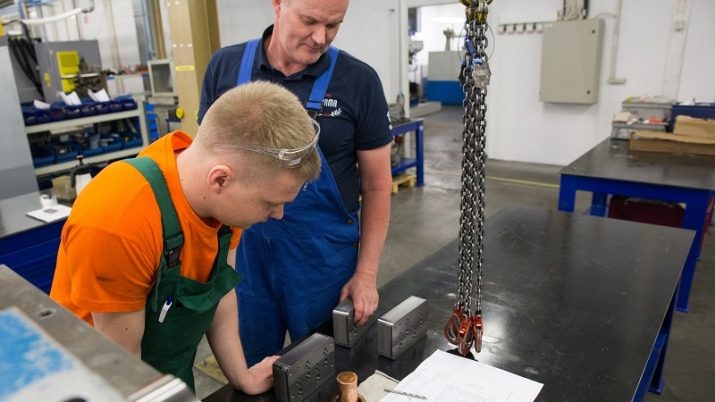
Where does it work?
Toolmaker has the opportunity to find a job at any manufacturing enterprise in the field of mechanical engineering and instrument making. This employee is personally responsible for the accurate and timely implementation of all the goals and objectives set for him. At the same time, an ion can demand from its leadership to provide it with the conditions necessary for effective activity.
A toolmaker can start an independent activity only after passing the obligatory briefing on the rules of labor protection and safety at work, electrical safety, fire safety, as well as the provision of first aid... It should be noted that in the course of performing work duties, these briefings will be regularly repeated in accordance with the plan established at the enterprise.In addition, any toolmaker must pass a medical examination every year and at least once every 3 years confirm the level of his qualifications.
In his labor activity, each toolmaker is based on the following regulations:
- approved job description;
- adopted rules for labor protection;
- fire safety regulations;
- electrical safety rules.
In the process of performing work, the toolmaker must use protective equipment (gloves and goggles), and also wear overalls.
